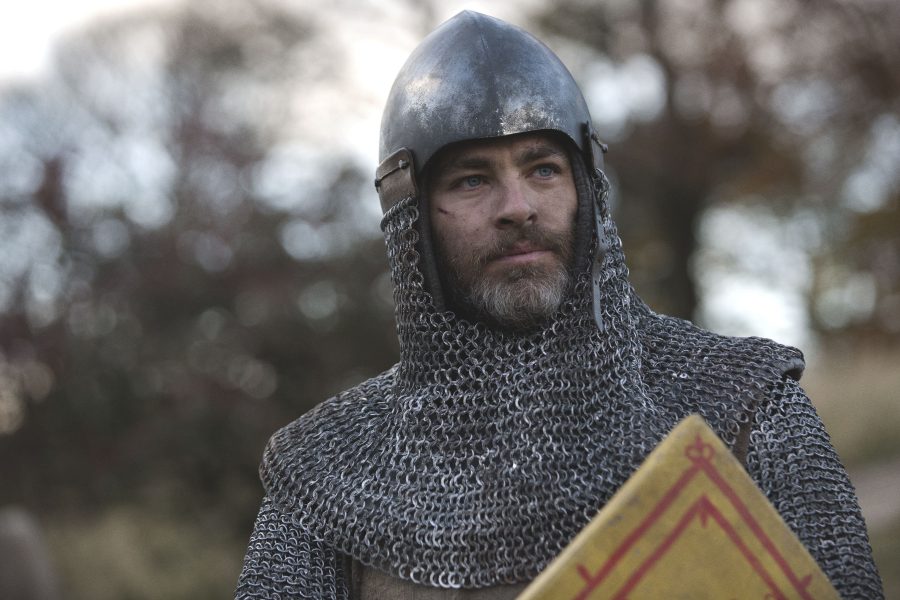Director David Mackenzie found success in his native United Kingdom over the past few years as his most recent film, “Hell or High Water” was nominated for an Academy Award for best picture in 2017. For his newest outing, “Outlaw King,” Mackenzie reunites with star Chris Pine to tell the story of Robert the Bruce, the King of Scots who secured his nation’s independence from England in the early 1300s.
Critics were unimpressed with the 137-minute film at its Toronto International Film Festival premiere, so Mackenzie went on to cut 20 minutes before the film’s wide release on Netflix, hoping to change some minds. “Outlaw King” strives to craft a veritable epic from a story that naturally lends itself to the prospect, but is unfortunately underwhelming even after another round of edits.
Robert the Bruce’s story is cinematic. perhaps non-traditionally so. The scene of outnumbered Scottish forces rallying around their charismatic leader to win freedom is a bursting militaristic spectacle and the heart of national yearning. But the emphasis on action becomes gratuitous detracts from the story. There is no shortage of gruesome violence as men are hanged, quartered, impaled and hacked to pieces. Much of the film is dedicated to these scenes of skirmishes, ambushes and battles.
Pine’s performance as the King of Scots is weighty and measured, complemented by Florence Pugh’s confidence as his Queen Elizabeth de Burgh and Aaron Taylor-Johnson’s portrayal of the crazed, vengeful Lord James of Douglas. I particularly enjoyed Billy Howle as the bratty Prince of Wales who fruitlessly seeks to stamp out the rebellion in the name of England. The actors were clearly able to handle more of the emotional drama that the film was lacking.
The film feels exactly like one would expect from a medieval story, a la “Game of Thrones.” However, while the HBO series has entire seasons to divide between drama and spectacle, “Outlaw King” has under two hours, choosing to adopt all the fantastical violence of George R.R. Martin’s world and none of the political thrills.
Robert the Bruce and his allies suffer greatly throughout the film in search of a climactic victory. After putting them through the wringer for two hours, the film abruptly ends. The result of the war is explained through text that is shown before the credits, thus not giving a satisfying conclusion to the drama — however minimal it was — between the characters.
If violence doesn’t disturb you, then “Outlaw King” is quite an enjoyable watch. But it is not the best film to tell the story of Robert the Bruce. I was engaged for the entirety of the film but it’s certainly not the Oscar nominee Netflix hoped it would get from the accomplished director-actor pair. Maybe one day we’ll see a Scottish epic that outdoes “Braveheart.”
Email Fareid El Gafy at [email protected]


























































































































































